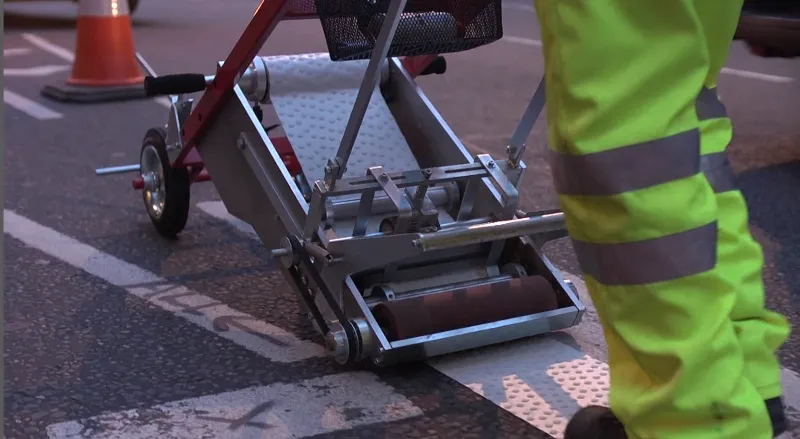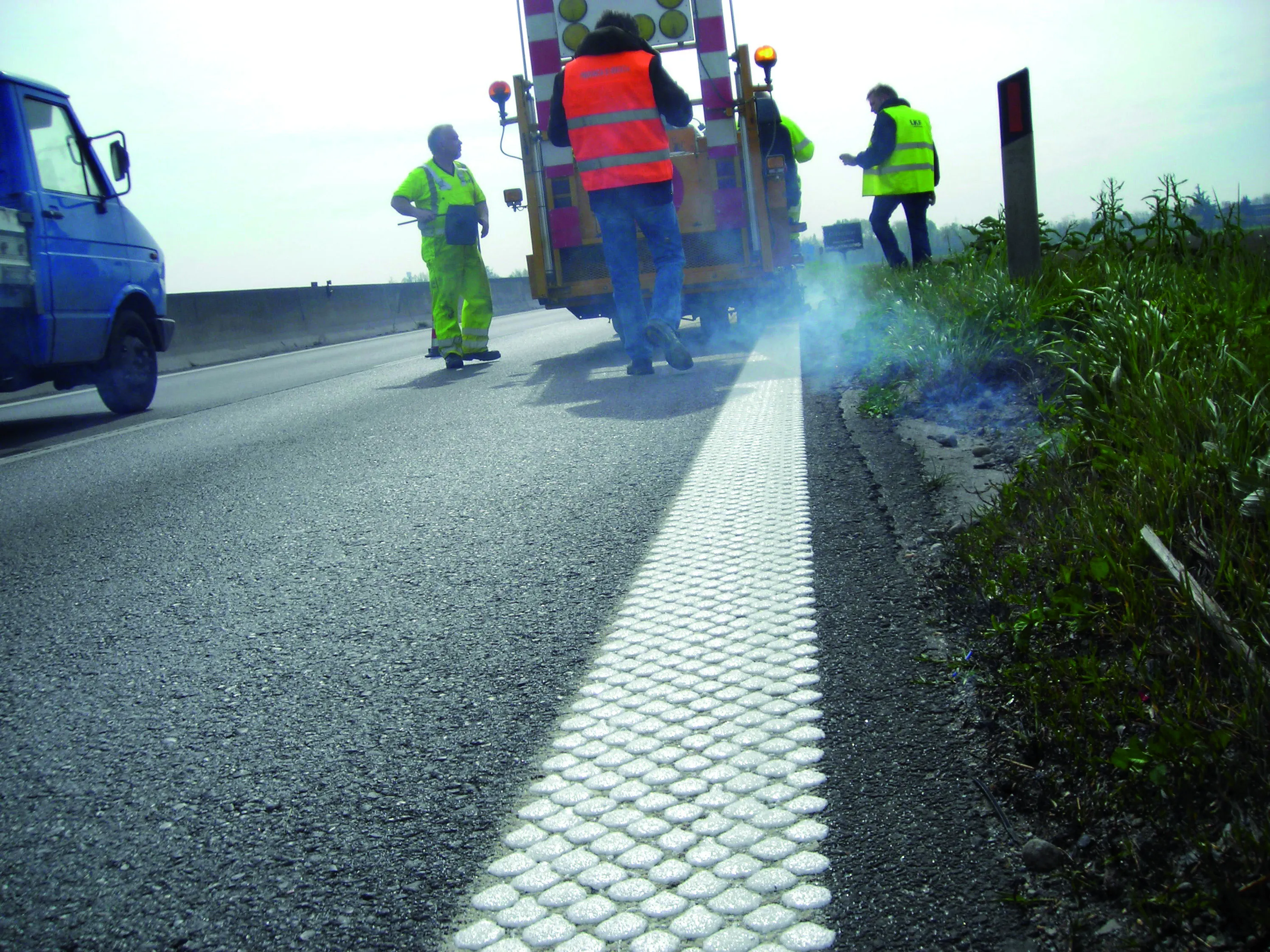
UK-based road works safety specialist WJ is set to deliver this year what it says will be the first accelerated-wear testing device for road studs.
The company also said that it will be updating its Contramark II temporary road stud installation system during the year. Improvements, too, have been made to its Hydroblast line removal process and the company’s Captive Shot Retexturing equipment.
Company executives revealed their plans during a safety conference in southwest England earlier this year.
The Contramark Fully Automated Surface Applied Temporary Road Stud System consists of temporary tape markings and “stick-on” road studs.
“It is still very frustrating that there is no live test bed in the UK where we can check performance of our new ideas,” said Martin Webb, operations director at WJ. “Usually we have to go to Belgium for road trials, but this latest investment is a step change for testing road studs as well as other highway maintenance and traffic products. The equipment will be initially for our own use but ultimately made available for anyone in the highways sector to utilise as well.”
WJ has developed an LGV Driver Performance Monitoring and Reward Programme. Speeding, harsh cornering, severe braking, rapid acceleration and stop-sign violations are monitored on a system within the vehicle’s cab. From this information, WJ produces a league table for drivers in each of its depots with the top of the league receiving a cash prize every month and then again at the end of the year.
More information is available from the website of WJ.








